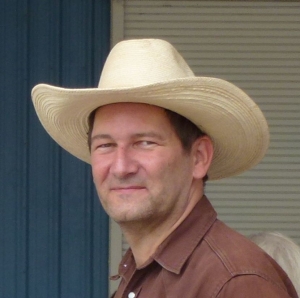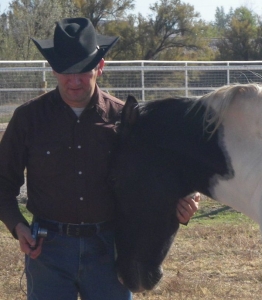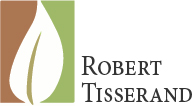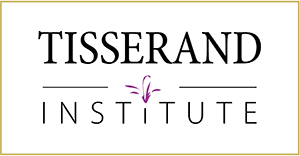 Florian Birkmayer, M.D., founded the Birkmayer Institute in 2009 to offer holistic person-centered psychiatry and addiction medicine as well as seminars and workshops on a wide range of holistic topics to facilitate self-transformation and continued self-development. This approach has been inspired by C.G. Jung’s ideas about Individuation, which is the journey of the limited ego to the Higher Self. His emphasis in holistic psychiatry is on Equine-assisted therapy, person-centered psychotherapy and holistic medication management including aromatherapy.
Florian Birkmayer, M.D., founded the Birkmayer Institute in 2009 to offer holistic person-centered psychiatry and addiction medicine as well as seminars and workshops on a wide range of holistic topics to facilitate self-transformation and continued self-development. This approach has been inspired by C.G. Jung’s ideas about Individuation, which is the journey of the limited ego to the Higher Self. His emphasis in holistic psychiatry is on Equine-assisted therapy, person-centered psychotherapy and holistic medication management including aromatherapy.
I met Dr. Birkmayer in February 2013, when he attended a weekend seminar I gave at the College of Botanical Healing Arts in Santa Cruz. The Birkmayer Institute is located in Albuquerque, New Mexico.
Robert: Not many psychiatrists use essential oils in their practice, in fact I can’t think of any others. What have been your main reference points for how to proceed using essential oils?
Dr. Birkmayer: You are correct that not many psychiatrists use essential oils and I feel like any pioneer in that I’ve had to proceed carefully. My main reference points for using essential oils have been holistic providers, many of whom recognize the interactions between emotional and physical symptoms. Also I have learned a lot from my clients, who are really the experts on their own well-being. Essential oils fit nicely into a client-centered and self-empowering approach. Sylla Sheppard-Hanger’s book The Aromatic Mind has been a very useful guide, as well as Salvatore Battaglia’s Complete Guide to Aromatherapy. There are also several books about the safety, including your Essential Oil Safety, that are very valuable. Unlike many psychiatrists, my clients are generally very interested and willing to try essential oils and report benefits and that is what has kept me going.
Are there different rationales for essential oil use in psychiatry?
I see several rationales: First and foremost, many medications and the approach of many psychiatrists is disempowering to clients, and essential oils restore a client’s sense that there’s something they can do, that empowers them to change their emotional state and cope better. Also, many clients that seek me out have experienced serious side effects and limited benefit from their psychiatric medications and are seeking gentler approaches. However I don’t want to ‘throw the baby out with the bath water,’ and for many clients we use a combination of medications and essential oils. I use the oils both to alleviate symptoms and enhance well-being and coping, but also to counteract side effects of medications.
Are you looking for specific effects from specific oils, or is it all basically ‘feel-good’, or do you use fragrance to anchor feelings?
I use essential oils for specific effects, such as enhancing mood or alleviating anxiety or insomnia as well as to counteract certain side effects of medications. What you refer to as ‘feel-good’ I see as the enhanced sense of well-being that clients get from regaining a sense of resilience and improved coping skills with regards to their symptoms and life stressors. This also allows clients to shift from being symptom-focused to being ‘strengths based’ or ‘recovery oriented.’ In many cases, I tell clients to think of an intention or positive thought when they apply the essential oils, so in addition to the specific effects, the oils can thereby anchor feelings and intentions, or, more broadly, an enhanced sense of self-efficacy.
What type of complaints do you see most?
The most common complaints I see are related to traumic experiences, as well as anxiety, depression, insomnia and side-effects from medications.
Do you mostly use single oils or blends? Why?
I use both single oils as well as blends of up to four or five oils. In my psychiatric practice I’ve met many clients that are on multiple medications, which increases the chance of drug interactions and side effects and one of my core approaches is to simplify medication regimens as much as possible. Similarly when I use oils I try to use a minimum number – it’s more elegant and it’s gentler on the client’s brain.
Do you allow some clients to pick their own oil or blend?
Most of the oils and blends I offer are customized for the individual client with input from them. During a visit, I select a few oils that I feel might be helpful and let the clients smell them and choose the oils that agree with them. The olfactory nerves go directly to the limbic system, which is the part of the brain that processes emotions, and thus how a client reacts to a smell to me is an indication of what their limbic system may need at that time.
What do you hope for in terms of the effects of the oils?
There are many specific effects related to sleep, anxiety, mood, but above all I hope to restore a client’s sense of self-efficacy, so they can cope better with their lives and that the oils become ‘tools in their toolbox of coping skills.’
What are some of your favorites, and what do you mostly use them for?
I have many favorites, but recently I’ve been particularly fond of a simple combination of melissa (lemon balm) and palo santo essential oils which I have given several clients with anxiety and trauma-related issues and it appears to allow people to center themselves and let go of feeling overwhelmed.
Can you describe one or two of your cases where essential oils have played a major role in mental health improvement?
I have a simple blend that I call Sleep Oil that I developed and started using for myself and then shared with colleagues and then with clients – insomnia is a very common problem – and the response has been overwhelming. People are always asking me for more Sleep Oil, giving it to relatives and raving about it. One of the cool things about using this is that it’s applied to the skin. Many people are used to having to ingest something, a medication or a supplement, to get help with insomnia, so when they use Sleep Oil, they unlearn that they need to ingest something to sleep and that goes a long way towards restoring a natural sleep pattern.
Another example: As you may know, some psychiatric medications cause sexual side effects, which can be very distressing. I’ve had success with several clients in overcoming these side effects by using ylang-ylang diluted in a carrier oil and topically applied.
So how exactly are your essential oils used – does it always involve topical application? To skin?
I’ve been using topical application, which I tell clients to think of as anointing themselves as well as sprays which I tell clients to consider their ‘signature scent’.
 Apart from treating clients, what are some of your other activities?
Apart from treating clients, what are some of your other activities?
One of the goals of The Birkmayer Institute is to offer seminars on a wide range of holistic topics, including aromatherapy. I’ve been teaching a monthly seminar on C.G. Jung’s Red Book for the past year, which has been a remarkable journey. Apart from essential oils and Jung, my greatest passion is equine assisted therapy and I have been blessed that my relationship to horses has gotten deeper and more profound through providing equine assisted therapy and experiencing the healing power of horses. Several times a year, I host a retreat for healers called ‘Horses Healing Healers.’
Do you see any signs that conventional medicine is becoming any more open to the use of unconventional therapy, especially essential oils? Could aromatherapy transform psychiatry?
The clients are very eager for new, more gentle and transformative approaches. However, the field of psychiatry acts reserved and skeptical, even more than providers in other medical specialties, at least on the surface. In private I’ve had several colleagues, especially nurses but also a few physicians, express great interest. My dream is to organize a conference on holistic – especially aromatic – psychiatry in the next couple years, as I suspect there’s a lot of hunger for knowledge.
Dr. Birkmayer received his B.A. from Princeton University and his M.D. from the College of Physicians and Surgeons of Columbia University. He completed his psychiatry residency at the University of New Mexico. He has previously served as the director of the Dual Diagnosis Clinic at University of New Mexico Psychiatric Center and as the director of the Substance Use Disorders program at the Veterans Affairs Medical Center in Albuquerque, NM. He was invited to be a full member of the Group for the Advancement of Psychiatry. He has a long-standing commitment to working with the underserved, e.g. working with Na’anizhozhi Center Inc., a Navajo-tradition based detox and rehab center in Gallup, NM and providing tele-psychiatry to underserved areas. He views himself as a bridge-builder between different medical worlds and works closely and respectfully with a wide range of healers.


This is such wonderful work you are doing, Dr. Birkmayer! I use essential oils in my practice as well (as an acupuncturist) and it is truly amazing what transformational effects they can have on the spirit. Thank you for doing this incredible work!
Fascinating and so refreshing to learn of a U.S. trained physician that has embraced aromatherapy and equine therapy (both of high interest to me) in his practice. The focus on empowerment, well being and restoring a client’s sense of self-efficacy should be a part of all healing types. Doctors that can apply more than a shopping list of prescriptive drugs is worth his/her weight in gold.
I want to be a part of the conference that he’s planning at a cerebral level right now.
I am encouraged by your work and commitment to build bridges.
it´s an important example that pharmacology and aromatherapy can go “hand to hand”
How amazing and exciting to read about a psychiatrist using aromatherapy to complement pharmacotherapy! Too often there is fear about using essential oils while under specific medication, to the point all essential oils are avoided totally. It is so true that using essential oils to cope better becomes one empowering aspect in the midst of managing mental ill health. Great work, thanks for the continued inspiration!
And ps. it is good to know someone else is using palo santo as well – it is such a potent oil for connecting with Mother Earth and our own soul power.
Could you possibly tell me why my 15 yr old son would feel sick from the smells of good oils. He really doesn’t like them
Lisa, what other smells or chemicals does your son find nauseating? Cigarette smoke, perfumes, cleaning products, paints…
I’m very excited to hear that more of our medical community is willing to branch out and see what non-toxic, no side effect plant medication can do to help. I work with many clients that find relief using aromatherapy and it’s fascinating how it affects the limbic system. Mona Chopra would love to now how you incorporate essential oils into your acupunture
I have been using aromatherapy successfully with trauma survivors for nearly 2 decades. My clients are usually referred by psychotherapists or psychologists, so it is very refreshing to hear about a psychiatrist embracing the use of essential oils in therapeutic practice. And a guy who’s a fan of The Red Book, too! Thank you, Robert, for posting this interview.
This is just fantastic. Thanks Robert for bring this to us, this interview just said that we can trust that there is future for the aromatherapy. I always believed that the aromatherapy is the most wonderful tool that we have in order to help us to feel good in so many ways.
Thanks many thanks
I love your approach. have you ever worked with schizoaffective disorder? do you know of anyone on the east coast who is working holistically in psychiatry?